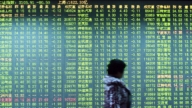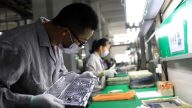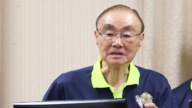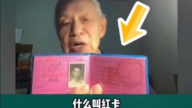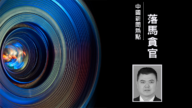【新唐人2011年10月18日讯】中共十七届六中全会以“文化体制改革”为主题,这是中共自2007年十七大以来,首次将文化作为中央全会的议题。海内外学者指出,北京当局不放弃马列毛主义和共产党的领导,不可能复兴被中共肆意破坏的中华五千年传统文化,中共党文化更不可能提升国际竞争力。
按照中共各次全会的传统,十七届六中全会将是“胡锦涛时代”的收官之作。胡锦涛曾在十七大上提出“弘扬中华文化”,这也是首度在党代会上提出这样的政策。但是,以枪杆子和笔杆子起家的中共,从未放松对文化宣传方面的控制。
著名史学家、美国普林斯顿大学讲座教授余英时表示,他不认为六中全会“文化体制改革”能有所作为,他呼吁摒弃马列毛,恢复中华传统文化。
余英时:“因为它主要的马列主义是它的命根子,是它合法性的根据,它不可能丢掉;毛泽东是他们的开国始祖,它也不能丢掉,所以还有许多人继续跟着毛泽东唱红歌这一类的活动,这些活动表示它对不论是过去中国文化、而且西方主流文化一概排斥在外。所以在这个情况之下,我不晓得他们怎么样能发展文化方面的改革。”
今年初,一尊孔子雕像悄然出现在天安门广场,3个多月后雕像又被悄然搬离。旅美作家朱学渊指出,中共内部有三派混战,有主张走毛泽东共产老路的、有主张走孔子的传统专制或西方的民主宪政。
而中共政治局会议则强调,加强党的领导是推进文化改革发展的根本保证。
北京文化评论人叶匡政:“中共所谓的文化体制改革,或者是加强文化改革,说穿了我感觉还是加强党对文化的控制。因为文化其实是一种自发的东西,那么对文化最好的方式,其实不是讲要加强对它的管理,更好的其实是放权,就是让民间自生的自己发展。”
前国务院农村发展研究中心研究员姚监复,批评中共建设所谓的社会主义核心价值体系,要强行把民众的思想统一在中共的思想上,他指出,这种价值体系不会促进社会的“和谐”发展。
而在高举马列主义大旗的中共统治下,今天的中国人仍然不能自由的撰写文章、不能对当局提出批评意见,否则要被定为“颠覆国家政权罪”。
广西作家荆楚:“因为共产党假大空、党八股、道貌岸然、虚伪的东西太多了,这样的虚伪东西怎么可能成为一个文化大国呢?文化不需要他们做什么,而需要他们不做什么,比如说取消思想警察、言论特务、网络管制、新闻控制、出版管制这一系列问题,文化自然就繁荣起来了。”
台湾媒体分析,文化体制改革,可大可小。小可以只做到文化事业企业化、市场化﹔大可以深到意识形态的开放、言论自由甚至解除报禁,进而带动政治改革。
台湾铭传大学教授杨开煌认为,北京当局这时候推动文化体制改革,就是从阻力少、软性的着手,由文化、社会、经济体制改革来包围政治体制改革,从容易的着手,震荡比较少。
余英时:“我想它因为在政治上不能改革,所以就把改革推倒文化方面去。共产党对传统文化也没有真正尊重,只是当作一种工具,希望能够有所利用。中国传统文化是很有包容性的,是相当容忍的,包容性是现在共产党一党专政的文化是绝对没有的,最重要的就是自由是文化的命根子。”
中共中央党校前科研办公室主任杜光在微博上指出,目前中国面临着危机四伏、形势险恶的局面,贫富日益分化,官民矛盾加剧,道德沦丧,贪腐遍地,许多关切国家命运的人忧心如焚。
杜光呼吁,有必要以改革文化体制和社会体制来推进政治体制改革,这是和平变革的最后希望。如果这个希望破灭,就可能出现暴力变革,那是谁也不希望出现的前景。
新唐人记者林莉、李元翰、萧宇采访报导。
Criticism Of CCP’s “Cultural System Reform"
The 6th Plenary Session of Chinese Communist Party’ (CCP)
used “cultural system reform" as its theme.
This is the first time since 2007. Domestic and foreign
scholars point out that if Beijing doesn’t give up
Marxism-Leninism-Maoism and the Communist Party,
it’s impossible to revive the 5000 years old Chinese culture,
which was arbitrarily destroyed by CCP. The party culture
is impossible to improve its international competitiveness.
According to the tradition of CCP’s plenary sessions,
the 6th Plenary Session of the 17th Central Committee (CC)
will be the work of collecting officials of “Hu Jintao’s era."
In his leadership during 17th CC, Hu Jintao has been putting
forward the “promotion of the Chinese culture".
But now is the first time
when this topic is raised at a CCP session.
However, with the gun and pen, CCP has never
released the control of cultural propaganda.
Well-known historian, Princeton University Professor
Yu Ying-shih doesn’t think
the “cultural system reform” of the 6th Plenary Session
will make any difference.
He called for abandoning Marxism-Leninism-Maoism,
and for restoration of the traditional Chinese culture.
Yu Ying-shih: “As Marxism-Leninism is its lifeblood, is the
base of its legitimacy, it’s not possible for CCP to give it up.
Mao Zedong was its founding ancestor.
CCP will not give it up.
So there are many people who continue
the activities of following Maoism’ singing party songs.
These activities indicate
that CCP excludes all other cultures,
no matter whether it’s the past Chinese culture
or mainstream Western culture.
So in this situation, I don’t know how CCP will
develop the reform in regard to culture."
Earlier this year, a statue of Confucius quietly
appeared on Tiananmen Square.
After 3 months it was removed.
Zhu Xueyuan, a writer living in the US, points out that
there are three factions within CCP’s infighting,
one advocating the old path of Mao Zedong,
another advocating the traditional system of Confucius,
and a third promoting the Western constitutional democracy.
However, the Politburo meeting of CCP stressed
that strengthening the party’s leadership
is the fundamental guarantee of promoting
the development of a cultural reform.
Beijing-based cultural critic Ye Kuangzheng said: “CCP’s
so-called cultural system reform, or enhancing cultural reform,
I feel is to strengthen the party’s control over the culture.
However, as culture is a spontaneous thing, the best way
of treating culture is not to strengthen its management,
but to decentralize the power and to allow people
to have their own self-development."
Yao Jianfu, a former researcher at the State Council
Development Research Center, criticized CCP’s building
of the so-called socialist core value system, which is
to force people’s thinking to unify in the CCP’s ideology.
He pointed out that this value system would not promote
the society’s “harmonious" development.
Under CCP’s rule, holding up the Marxism-Leninism banner
Chinese people today are still not able to freely write articles,
nor criticize the authorities; otherwise they will be charged
with the crime of “subversion of state power."
Guangxi-based writer Jing Chu: “Because of CCP’s fake,
bragging hollowness, stereotyped Party writing,
and sanctimoniousness, there are too many hypocritical things.
With such a hypocrisy, how can it be a big cultural country?
Culture does not need them doing things, rather them not
doing things, like having thought police, speech spies,
network control, control of the press, control of publishing.
If these issues are resolved, culture will flourish naturally."
According to Taiwan’s media’s analyst,
the degree of cultural system reform can vary.
A small reform would mean to only make the cultural
enterprises industrialized, market-oriented.
A big one is to open up the ideology, to free the speech, even
to lift the newspapers’ ban, thus promoting a political reform.
Yangkai Huang, a professor from Ming Chuan University
in Taiwan, believes that if Beijing authorities
are to promote the cultural system reform today, they should
start from where there will be less resistance and softness.
Starting from the reform of culture, society and economy,
surrounding a political reform, the shock will be smaller.
Yu Ying-shih: “I think it is because they can not conduct
political reform, so they would try to reform the culture.
CCP has no real respect for traditional culture,
but sees it as a tool in the hope to make some use of it.
Chinese traditional culture is very inclusive, very tolerant.
Inclusiveness is something CCP’s one-party dictatorship
absolutely doesn’t have. It’s more important than freedom,
it is the lifeblood of a culture."
Du Guang, a former research director of the Office of CCP’s
Central Party School, pointed out in a microblog,
that China is facing a dangerous, perilous situation.
With serious polarization of the rich and the poor,
with the intensifying conflicts between officials and civilians,
the moral turpitude and corruption everywhere,
many people concerned of the country’s destiny
have serious worries.
Du Guang thinks it is necessary to reform the social system,
the cultural system and to promote a political reform.
This is the last hope for peaceful change, thinks the expert.
If this hope is lost, the only option might be
the violent change, which nobody is willing to witness.
NTD reporters Lin Li, Li Yuanhan and Xiao Yu


